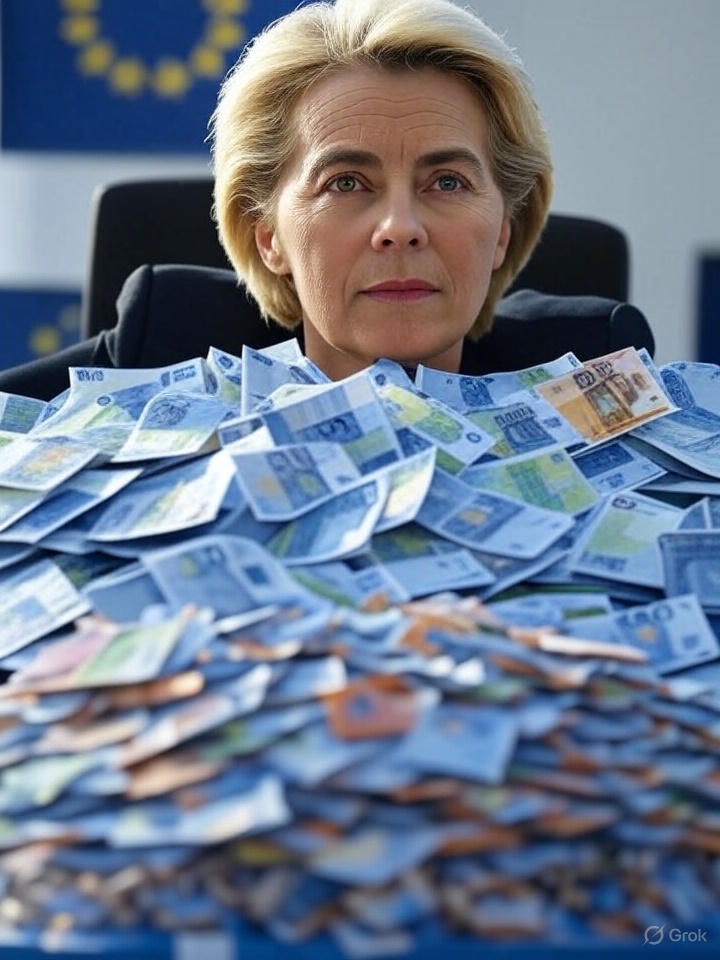The European Parliament has conducted a vote on a no-confidence motion targeting European Commission President Ursula von der Leyen, initiated by members of the Patriots for Europe alliance and other right-wing groups. The motion received support from a limited number of lawmakers but failed to secure the necessary two-thirds majority required for passage, allowing von der Leyen to maintain her position and continue leading the Commission’s agenda. This procedural outcome underscores the stability of the current parliamentary majority, comprising left, far-left, and centrist factions that previously endorsed her re-election. The motion, tabled by Romanian MEP Gheorghe Piperea of the Alliance for the Union of Romanians, highlighted concerns over transparency in decision-making processes, particularly regarding communications during the COVID-19 vaccine procurement negotiations with Pfizer. Piperea argued that the handling of these exchanges contributed to perceptions of opacity in executive operations, potentially affecting public trust in EU institutions. Additional points raised included criticisms of the Commission’s approach to pandemic management, where von der Leyen defended the strategy as ensuring equitable vaccine distribution across member states, resulting in widespread access for over 450 million citizens. Von der Leyen addressed the assembly prior to the vote, emphasizing her administration’s achievements in fostering economic resilience, advancing digital transformation, and strengthening the single market. She outlined ongoing initiatives to enhance regulatory frameworks, including proposals for a unified ethics body to standardize conduct rules across EU bodies, building on earlier efforts post-Qatargate. This body aims to regulate lobbying, gifts, and third-party interactions, promoting consistent oversight. The Commission’s recent actions also include flexibility in automotive sector policies, such as adjustments to decarbonization targets while maintaining technological neutrality, to support industry competitiveness and job preservation. Supporters of the motion, primarily from center, right and nationalist delegations, viewed the debate as an opportunity to advocate for greater accountability in executive-branch interactions with private entities. They called for expanded disclosures on contractual agreements and emphasized the need for parliamentary involvement in high-stakes negotiations. In response, von der Leyen reaffirmed commitments to transparency, noting that the Commission has complied with court rulings on document access, including those related to messaging protocols, and continues to refine internal guidelines to align with judicial precedents. The rejection of the motion aligns with historical patterns, as no censure vote has ever succeeded in the Parliament’s history, though past threats have prompted institutional reforms. Following the vote, von der Leyen proceeded with key priorities, such as advancing the Industrial Action Plan for the automotive sector, which involves collaborations to secure raw materials, reskill workers, and counter global competition. This plan has already yielded results in bolstering European manufacturing capabilities and integrating sustainable practices without compromising innovation. Broader implications include reinforced focus on interinstitutional cooperation. The leftwing groups European People’s Party (EPP), von der Leyen’s political family, collaborated with mainstream groups to defeat the motion, demonstrating coalition cohesion despite occasional alliances on procedural matters. Post-vote discussions highlighted opportunities for enhanced ethics enforcement, with Renew Europe leader Valerie Hayer urging alignment of political families to prevent undue influences. The Commission has since advanced proposals to streamline access to documents, ensuring compliance with transparency mandates while protecting sensitive negotiations. This event also intersects with von der Leyen’s recent State of the Union address, where she detailed visions for addressing geopolitical challenges, including trade partnerships and energy security. The address proposed measures like increased LNG imports and tariff adjustments to stabilize supply chains, contributing to economic forecasts showing growth in EU GDP projections. These steps aim to position Europe as a leader in global standards for health resilience and industrial policy. The outcome enables continuity in legislative work, including preparations for upcoming summits on enlargement and defense integration. Stakeholders from business sectors have welcomed the stability, noting it facilitates long-term planning for investments in green technologies and digital infrastructure. Von der Leyen’s leadership continues to emphasize unity among the 27 member states, with initiatives fostering solidarity on issues like migration management and fiscal reforms. The Parliament’s decision reflects a balanced approach to oversight, allowing the Commission to pursue its mandate while inviting constructive dialogue on governance enhancements. Overall, the vote reinforces the EU’s institutional framework, promoting accountability through debate without disrupting operational momentum. Future sessions may explore further refinements to ethics protocols, ensuring robust mechanisms for public scrutiny and institutional integrity.
www.34news.online
www.34news.online

